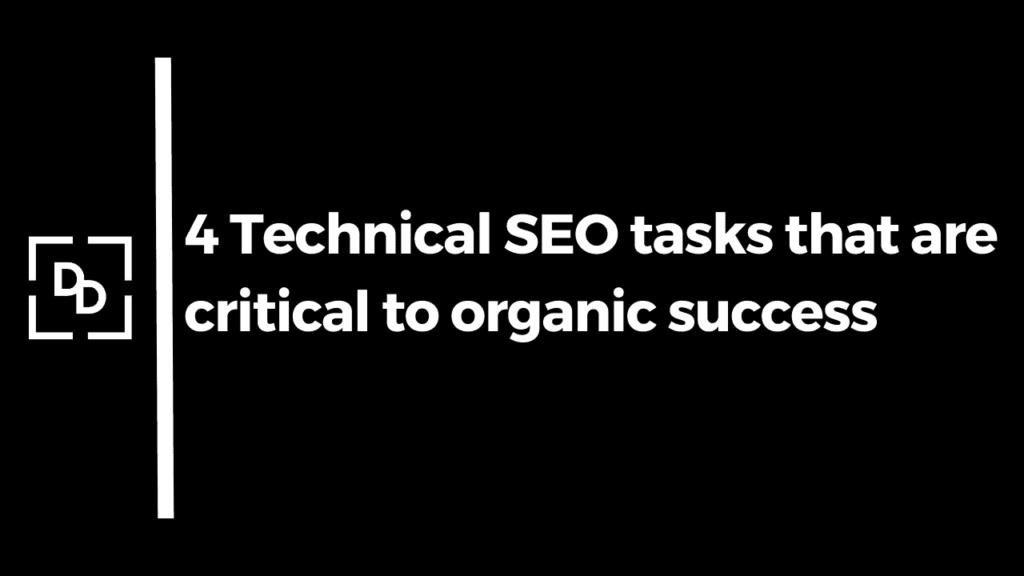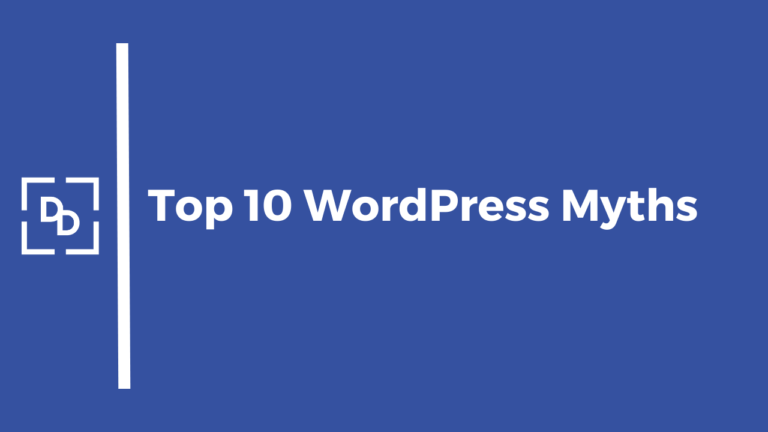Introduction
Mastering the basics of Technical SEO is crucial for improving your website’s search engine visibility.
Technical SEO involves optimizing your website’s infrastructure to make it easier for search engines to crawl and index your content.
This includes tasks like optimizing page speed, fixing broken links, implementing schema markup, and creating an XML sitemap. By understanding and implementing these technical elements effectively, you can enhance your website’s organic search performance and attract more qualified traffic.
In our previous blog, we discussed in great detail about Technical SEO. Read the blog here
In this brief guide, we’ll discuss 4 key tasks that will strengthen your website from a Technical SEO perspective.
Read our comprehensive guide on Technical SEO
4 Key Technical SEO Tasks
1) Site Architecture: Architecture is the foundation of any website. Optimizing site architecture is a key technical SEO task that can significantly improve your website’s performance. By organizing your content logically and hierarchically, you make it easier for both users and search engines to navigate and understand your site.
A well-structured site architecture also helps distribute link equity throughout your pages, boosting overall SEO performance. Taking the time to review and optimize your site’s architecture can lead to improved crawlability, indexability, and ultimately, better search engine rankings.
- URL Structure: Maintaining a clear, concise URL’s that reflect the content of the pages
- Hierarchy: Creating a clear structure with categories & sub-categories
- Internal Linking: Establishing a robust internal linking structure to help distribute link equity & guide search engines through your site
- Breadcrumbs: Implementing Breadcrumb navigation to enhance user experience & assist search engines in understanding the site structure
Stay updated on all the news from the world of SEO from our blog section – your go-to guide
2. Crawlable Pages: Make sure that all your website pages are crawlable by search engines. Search engine crawlers rely on accessing and analyzing your content to index and rank your website in search results. By implementing measures such as optimizing meta tags, creating an XML sitemap, and using robots.txt effectively, you can facilitate smooth crawling and indexing of your web pages. This not only improves search engine visibility but also enhances the overall user experience by ensuring that users can easily find and navigate your content.
- robots.txt: Properly configuring robots.txt file informs the search engines to allow or disallow bots from accessing certain pages of your website
- XML Sitemap: Creating & submitting an XML Sitemap and then submitting in Google Search Console guides the search engines to all the pages of your website
- Avoiding Crawl Traps: Ensuring there are no infinite loops or excessive duplicate content that could trap crawlers
3. Index Pages: Another important task is Indexing all your pages. Indexing pages is a crucial aspect of technical SEO that directly impacts your website’s visibility in search engine results. By ensuring that your important pages are properly indexed, you increase the chances of them being displayed to users when relevant queries are made.
This step involves submitting your XML sitemap to search engines, fixing crawl errors, and optimizing meta tags to improve crawlability and indexation. Proper indexing of pages ensures that your content can be found and ranked appropriately, maximizing organic search success and driving qualified traffic to your site.
Key aspects of Page Indexing include:
- Meta Tags: Using the right Meta Tags (“no index” ; “index”) allows you to control which pages should be indexed
- Schema Markup: Adding structured data to help search engines understand the content of your website
- Canonical Tags: Implementing Canonical Tags helps prevent duplicate content issues by specifying the primary/preferred version of a page
- Errors Handling: This involves fixing any crawl errors reported in Google Search Console to ensure pages can be indexed
4. Mobile Optimization: The majority of searches these days are performed on Mobile devices, so ensuring that your website is Mobile-Friendly is very important make sure that all your website pages are crawlable by search engines.
The key aspects of mobile optimization include:
- Responsive Design: This involves creating a design that adjusts to different screen sizes & devices
- Mobile Usability: Ensuring that the buttons and links are easily usable on smaller screens & devices
- Page Speed: This involves optimizing for fast loading times on mobile devices by comprising images, minimizing code & leveraging browser caching
- AMP: This stands for Accelerated Mobile Pages and you should consider this for content-heavy pages for faster mobile page load times
Explore our free 18-part Technical SEO Course to help your website rank higher on SERPs and complete your technical SEO checklist.
Conclusion
Effective Technical SEO requires a holistic approach to ensure your website is accessible, crawlable & indexable by search engines.
By focusing on Site Architecture, Crawlable Pages, Proper Indexing & Mobile Optimization, you can improve your site’s visibility & rankings in search engines results
Check out our Free 18-part Technical SEO course here
Subscribe to our Newsletter to stay updated on all news related to this topic. If you have any questions, email us at mail@digital-doorway.com
Need Help?
Interested in scaling your business or get started in Digital Marketing?
Frequently Asked Questions
Technical SEO involves optimizing the website to ensure it is easy for search engines to crawl, index & rank.
Technical SEO focuses on improving the site architecture, navigation, & mobile optimization.
Read our full Technical SEO blog here
Absolutely!
We've published a 18-part comprehensive Technical SEO course for Free, which includes everything from Technical SEO introduction, understanding the elements, Schema Markup, Crawlability, Broken Links, robots.txt file & much more.
Watch the course on our Youtube channel here
A good Site Architecture helps search engines & users navigate your site more effectively. It ensures that all important pages are easily accessible & properly linked
Need Help?
Interested in scaling your business or get started in Digital Marketing?






